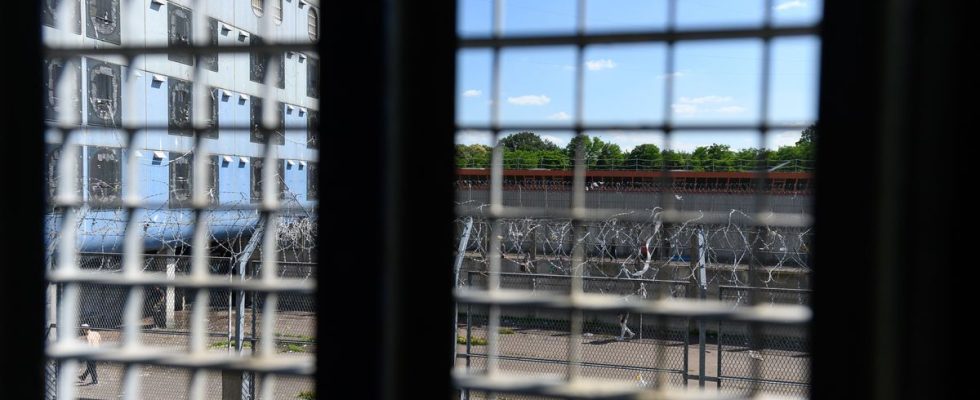In France, there are two types of prisoners: adults and minors. Those who are not yet 18 are separated from adult prisoners and placed in specific establishments. In 2021, 598 young people celebrated their majority within four walls. An anniversary that has many consequences, as highlighted in a study published Tuesday by the National Institute of Youth and Popular Education. “They change regime and civil status during their detention, with effects on the conditions of incarceration, their rights in prison, family ties, socio-educational support, but also on the perception and experience of prison and confinement”, write Yaëlle Amsellem Mainguy and Isabelle Lacroix, the authors of the study.
For 49 days, in 2021 and 2022, the two sociologists met 108 young people, aged 15 to 23, detained in seven prisons: two penitentiary establishments for minors, four remand centers and a detention center for women. First observation emanating from their interviews and their observations: nearly half of the people interviewed left school before the age of 15 and “earn their own money from legal or illegal activities”. Four out of ten left the family home or the institution where they were placed when they were 14-15 years old. “Many of them then describe a great residential precariousness, alternating accommodation with friends, in hotels, in temporary apartment rentals via the Internet, and go back and forth to their parents. »
“The break is sometimes brutal”
Young people under the age of 18 can be placed in one of the six penitentiary establishments for minors, or in one of the 47 remand centers for adults which have places for them. The passage in detention, note the sociologists, makes it possible to give them some reference marks. “They are forced to go back to school, no longer have a mobile phone, can no longer drink alcohol or smoke” and are supervised by educators. In the cell where they live alone, the TV is most often switched off at night. Unlike adult prisoners, they take their meals with others and do not have to cook. “Prison for minors reassigns these young people to the status of children when they were often already used to” [se] to fend for themselves, “to be the subjects of their own lives”, underline the two authors.
And sociologists note that these young people are “unprepared for the changes implied by the transition to majority”: “the end of the care provided by the PJJ, and therefore the end of the link with educators, the cessation of ‘educational projects started, and the decrease in the number of activities’. However, they point out, “the rupture is sometimes brutal”. Once they have joined an adult prison “where there are fewer activities and where access to showers is variable”, they share their cell with another inmate and fear being victims of theft, racketeering or physical violence. Some young people who are about to celebrate their 18th birthday “sleep little”, say they are “worried”, “worried”, “anxious” about the change of prison. “They apprehend the prison for adults as a place where there would be more violence during walks because of the number of prisoners present (…), the age and the sentences of the other prisoners. »
A lack of information
Overall, the young adults interviewed indicated “not having had specific information on the conditions and consequences of going to 18 years in prison”. “It is during informal discussions with prison guards and educators that they obtain information, drawing on the stories of experiences of those who have already worked in prison for adults. If they know that it is from the day of their 18 years that they can be transferred, the young detainees “most often do not know the exact date of their transfer”, continue the authors, adding that “this period of ‘uncertainty is anxiety-provoking’.
The two sociologists explain that the law nevertheless provides “that young people can be kept in their establishment for minors and minors’ quarters for six months after their majority”. “But in reality, it is rare. »

